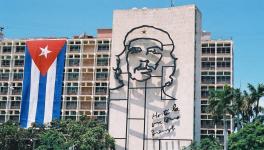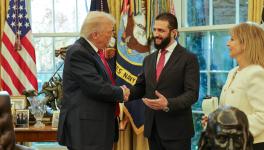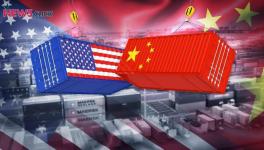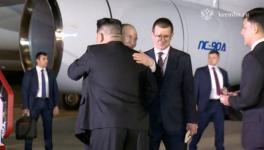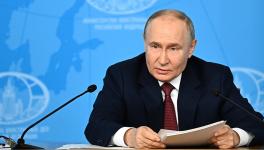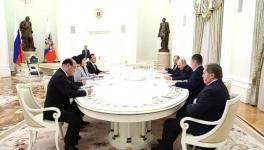Dialing up Pressure? North Korea Tests Long-Range Missile said to be First Since 2017
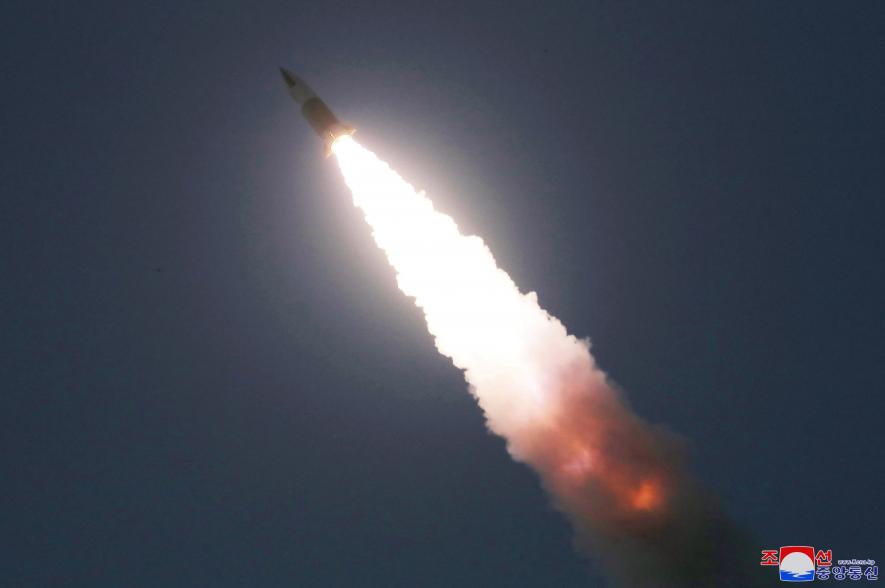
Seoul: North Korea fired a suspected long-range missile toward the sea Thursday in what would be its first such test since 2017, according to its neighbours' militaries, raising the ante in a pressure campaign aimed at forcing the United States and other rivals to accept it as a nuclear power and remove crippling sanctions.
The launch, which extended North Korea's barrage of weapons tests this year, came after the US and South Korean militaries said the country was preparing a flight of its biggest-yet intercontinental ballistic missile.
South Korea's Joint Chiefs of Staff didn't immediately say whether the weapon involved in the launch was ballistic or how far it flew. But Japan's Deputy Defence Minister Makoto Oniki said the missile, which travelled 1,100 kilometres while reaching a maximum altitude of over 6,000 kilometres, likely was a new ICBM. The flight details suggested that the missile was fired on a higher-than-usual angle to avoid reaching the territorial waters of Japan.
Japan's coast guard, which warned vessels in nearby waters about the potential for falling objects, said it believed the missile flew about an hour before landing in waters outside the country's exclusive economic zone. There were no immediate reports of damage to boats or aircraft.
South Korean President Moon Jae-in called an emergency National Security Council meeting where he criticised North Korean leader Kim Jong Un for breaking a self-imposed moratorium on ICBM tests and posing a “serious threat” to the region and the broader international community. Moon instructed officials to pursue “all possible response measures” based on its alliance with the United States and cooperation with other international partners, his office said.
“Even when the international community is responding to the Russian invasion of Ukraine, North Korea has been forcing its missile launches, which could one-sidedly escalate provocations,” Oniki said.
Following a highly provocative streak in nuclear explosive and ICBM tests in 2017, Kim unilaterally suspended such testing in 2018 ahead of his first meeting with then-US President Donald Trump.
North Korea's slew of weapons tests reflects a determination to cement its status as a nuclear power and wrest badly needed economic concessions from Washington and others from a position of strength, analysts say.
Kim Jong Un may also feel a need to trumpet his military accomplishments to his domestic audience and drum up loyalty as he grapples with a broken economy worsened by pandemic border closures.
The Biden administration's passive handling of North Korea so far, while it focuses on Russia's invasion of Ukraine and an intensifying rivalry with China, is allowing more room for the North to dial up its testing activity, some experts say. The administration's actions on North Korea have so far been limited to largely symbolic sanctions imposed over its recent tests and offers of open-ended talks that were quickly turned down by Pyongyang's leadership.
There are views in Seoul that Washington is slipping back to the Obama administration's “strategic patience” policy of ignoring North Korea until it demonstrates seriousness about denuclearization, although that approach was criticized for neglecting a gathering nuclear threat.
It was North Korea's 12th round of weapons launches this year and came after it fired suspected artillery pieces into the sea on Sunday.
The North has also tested a variety of new missiles, including a purported hypersonic weapon and its first launch since 2017 of an intermediate range missile with a potential of reaching Guam, a key U.S. military hub in the Pacific.
It also conducted two medium-range tests in recent weeks from Sunan, home to the country's main airport, that the U.S. and South Korean militaries assessed to have involved components of the North's largest ICBM.
The launch may possibly come around a major political anniversary in April, the birthday of state founder Kim Il Sung, the late grandfather of current leader Kim Jong Un.
Denuclearisation talks with the US have been stalled since 2019, when the Americans rejected North Korea's demand for a major release of crippling US-led sanctions in exchange for a partial surrender of its nuclear capabilities.
Get the latest reports & analysis with people's perspective on Protests, movements & deep analytical videos, discussions of the current affairs in your Telegram app. Subscribe to NewsClick's Telegram channel & get Real-Time updates on stories, as they get published on our website.










